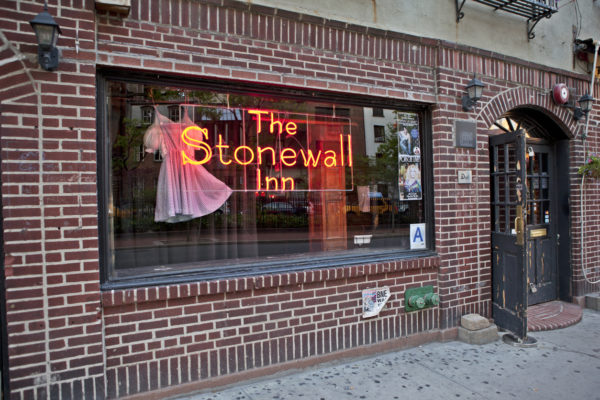As we mark the 50th anniversary this month of the historic rebellion against police violence at a gay bar in New York called the Stonewall Inn, the most common image of how far we’ve come is of Mayor Pete Buttigieg.
His smiling face, military record, churchgoing habits and supportive husband have landed him on the covers of magazines as diverse as Time and Out. His campaign for the Democratic presidential nomination has been touted as an emblem of how U.S. public opinion has “flipped on gay rights” since Stonewall in 1969.
The rebellion at the Stonewall Inn is considered by many as one of the most important events that led to the rise of LGBTQ rights in this country. But the heroes of Stonewall were not respectable, gender-conforming white men who had husbands waiting for them at home.
The heroes of Stonewall were in a Mafia-run dive bar that was regularly raided by the police because many of them had nowhere else to go. As drag queens and butches, as working-class people and sex workers, they were the queerest of the queer.
In photos of police raids from the time, white office workers hid their faces so as not to be associated with the likes of Sylvia Rivera and Marsha P. Johnson, outraged and outrageous brown and black leaders who fought the police for days after the failed last raid on the Stonewall Inn.
But just four years later, Rivera was not invited to speak at the Christopher Street Liberation Day Rally. Instead, she battled her way onto the stage amid booing and grabbed the mic. She screamed at the crowd of newly out, mainly white revelers: “Y’all go to bars because of what drag queens did for you, and they tell us to quit being ourselves.”
Rivera and Johnson were the founders of STAR (Street Transvestites Action Revolutionaries), and Rivera reminded the crowd that those most vulnerable to anti-queer violence — gender-non-conforming young people who had been kicked out of their homes for being queer — were being exploited by wealthier men they met in the bars. When unhoused queers need help, Rivera said, “They do not write men. They do not write women. They write to STAR.”
Despite their advocacy and visibility, Rivera and Johnson continued to experience homelessness and violence. Shortly after the 1992 New York Gay Pride March, Johnson’s body was found floating in the Hudson River. We still don’t know how or why she died. Rivera died in 2002 of liver cancer. Their legacies live on through the Sylvia Rivera Law Project and the Marsha P. Johnson Institute, which both advocate for transgender people of color, and in numerous other projects.
What Rivera and Johnson suffered throughout their lives remains the norm for many LGBTQ young people.
In Texas, a statewide LGBTQ needs assessment last year found that 52% of LGBTQ Texans younger than 30 have experienced homelessness. It is likely that a significant number of those are transgender or gender non-conforming since a 2015 national survey showed that a third of trans people had experienced homelessness at some point.
This situation will only get worse as the Trump administration seeks to allow federally funded homeless shelters to house people based on their assigned sex as opposed to gender identity. Queer and trans women placed in men’s housing are at a much higher rate of violent harm than when housed according to their gender identity.
To make things worse, rolling back federal protections legitimizes the idea that trans people do not deserve legal status and protection — making them much more likely to end up in homeless shelters, prisons, or mental hospitals due to issues including police profiling, violence and rejection by their families.
This month, we need to remember Sylvia, Marsha and the queer street youths of color they fought to protect. Let’s remember that those on the margins see oppression most clearly and suffer from it most severely. And let’s elevate their leadership and fight for their safety and dignity by supporting efforts to end homelessness and decriminalize crimes of poverty such as sex work.
The most iconic and transformative queer leadership is not the most assimilated; it’s the most marginalized, the most vulnerable — and the bravest.
Karma Chávez is an associate professor and chair of the Department of Mexican American and Latina/o Studies at The University of Texas at Austin.
Lisa L. Moore is director of the LGBTQ Studies Program at The University of Texas at Austin.
A version of this op-ed appeared in the Houston Chronicle, Austin American Statesman, Corpus Christi Caller Times, San Antonio Express News, and the Dallas Morning News.




